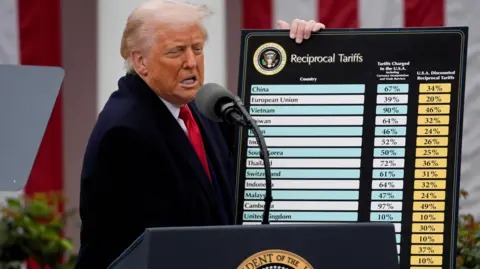In recent months, tariffs — the taxes governments place on imported goods — have moved to the centre of global economic conversation Tariff News. Whether you’re a business owner, exporter, or consumer, understanding these changes is vital. This article gives you a clear, SEO‑friendly overview of the latest developments in tariffs, trending keywords, and why they matter.
What are tariffs and why do they matter?
Tariffs are duties imposed by a government on products imported from other countries. They serve multiple functions: raising revenue, protecting domestic industries, and influencing trade balances. Dawn+2Dawn+2
Because they affect prices of goods, competitiveness of exporters, and global supply chains, changes in tariff policy often ripple across markets, economies and everyday life.
Current trends in tariff policy
Here are some of the major trends shaping tariff news right now:
-
Wide‑ranging baseline tariffs: One major economy has imposed a baseline tariff rate on almost all imports, signalling a shift away from previous trade liberalisation approaches. Dawn+1
-
Country‑specific reciprocal tariffs: Some countries face higher tariffs because of perceived trade imbalances or high import duties of their own. The idea: impose tariffs proportional to what other countries charge or how big the trade deficit is. Profit by Pakistan Today+1
-
Impact on export‑oriented countries: Countries whose economies depend heavily on exporting goods are feeling pressure. Higher tariffs can make their goods less competitive in big markets, leading to economic uncertainty. SDPI
-
Tariff reform at home: Some governments are also reforming their own tariff structures—reducing tariff slabs, cutting peak rates, improving transparency. Dawn+1
Why this matters for you
Whether you’re an entrepreneur, investor, or a consumer, tariff shifts matter. Here’s how:
-
Businesses & exporters: Changes in tariffs affect manufacturing costs, export markets, and competitiveness. If your country faces higher tariffs abroad, you may need to adjust pricing or find new markets.
-
Consumers: Tariffs often lead to higher prices for imported goods. Items you buy may cost more as import duties rise.
-
Policy watchers & investors: Tariff announcements can change trade flows, disrupt supply chains, and affect sectors like manufacturing, agriculture and retail. Keeping track helps anticipate market shifts.
-
National economies: Large tariffs may invite retaliation, provoke trade wars, reduce growth, and increase uncertainty for investment.
Trending keywords & tags
To stay current and improve visibility, here are some key terms you should be aware of:
-
“tariff news”
-
“import tariffs”
-
“reciprocal tariffs”
-
“trade war tariffs”
-
“export competitiveness”
-
“trade policy reform”
-
“tariff reduction”
-
“tariff impact on economy”
-
“tariff changes 2025”
-
“customs duties trending”
Use these keywords when writing content or doing research to align with what people are searching.
Outlook & tips
-
Expect more announcements: Many governments are reviewing or adjusting tariff rates, so regular updates are likely.
-
Diversify markets: If your business is export‑oriented, consider diversifying beyond traditional markets that may impose higher tariffs.
-
Monitor input costs: For manufacturers relying on imported components, rising tariffs can increase costs—review your supply chain.
-
Stay informed on policy reform: Changes in domestic tariff policy (such as reducing duty slabs) may create opportunities.
-
Keep an eye on inflation: Because tariffs can push up retail prices, consumer inflation may creep higher in affected economies.
In summary, tariff developments are far from trivial. They reshape trade flows, affect business strategy, influence consumer prices, and signal larger economic shifts. Keeping up with “tariff news” and related keywords will help you stay ahead of the curve.
